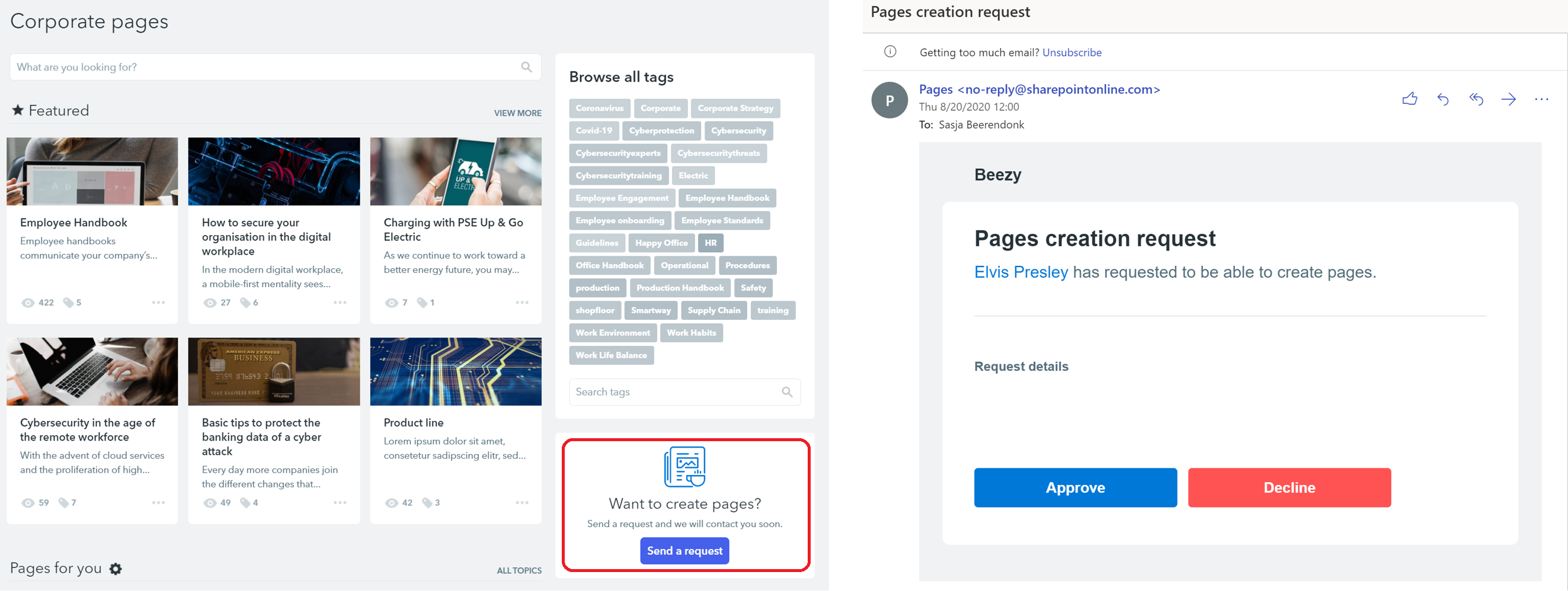Pages are a modern way to create, publish and deliver corporate information to the right audience in an engaging way.
- Pages are easy to create
- Pages can be social & collaborative
- Pages are visually compelling
- Pages are easy to keep always updated
- Pages are tailored to employee’s needs
Four roles have been established for this feature according to business needs:
Editors are distinguished as the managers in charge of the corporate pages. They are able to manage categories and topics that will target specific audiences. They can also add/remove other editors, writers, guest writers, and guest authors.
Writers are set up by an editor for each Topic. They are able to publish and edit pages under their specific topics.
Guest Writers are accepted by Editors to create content, via their own request (Pages overview -> Send request -> Editor approves the request -> they become Guest Writers for the whole Pages feature). After this, they can publish and edit Pages.

Guest Authors are platform users that are invited by an Editor or a Writer and added only on a specific page. They can publish and edit the content of a specific page. But they cannot create them.
Readers are all users, being able to see these pages and their related screens:
- Pages landing page to browse all pages and get personalized pages.
- Topic view that will only show stories related to a specific topic.
- Tag view that will only show stories related to a specific tag.
- Detail pages.
When Using Local Entities
Editors and Writers can only be selected and allowed to operate within their “entity scope”:
Editors can only select other Editors, Writers, and Topics that belong to their own Local Entity.
Writers are only able to select Topics assigned by their Editors within their Local Entity.
Please Note: Published Pages within a Local Entity are still available to users of other Local Entities and if they voluntarily choose to follow its respective Topic.
Was this article helpful?